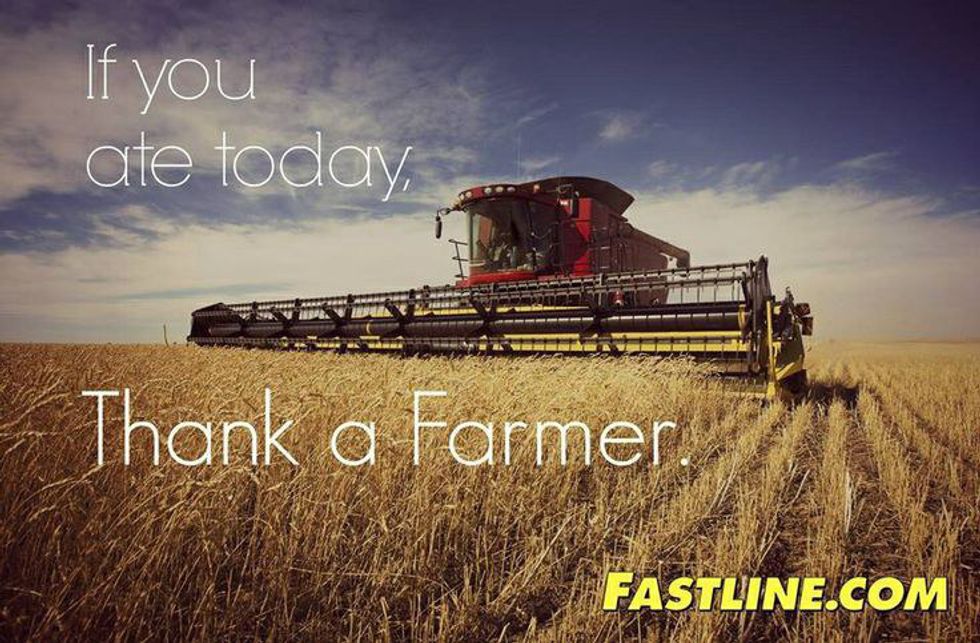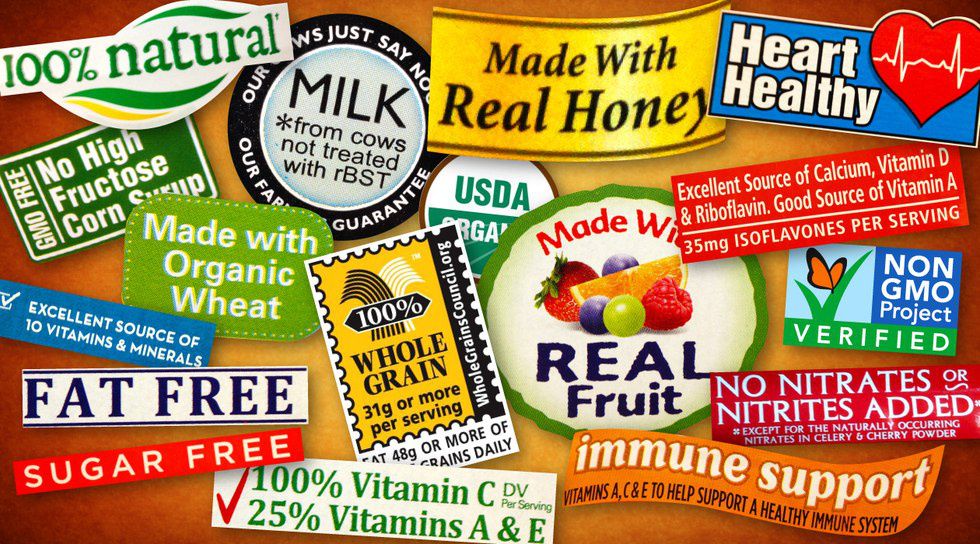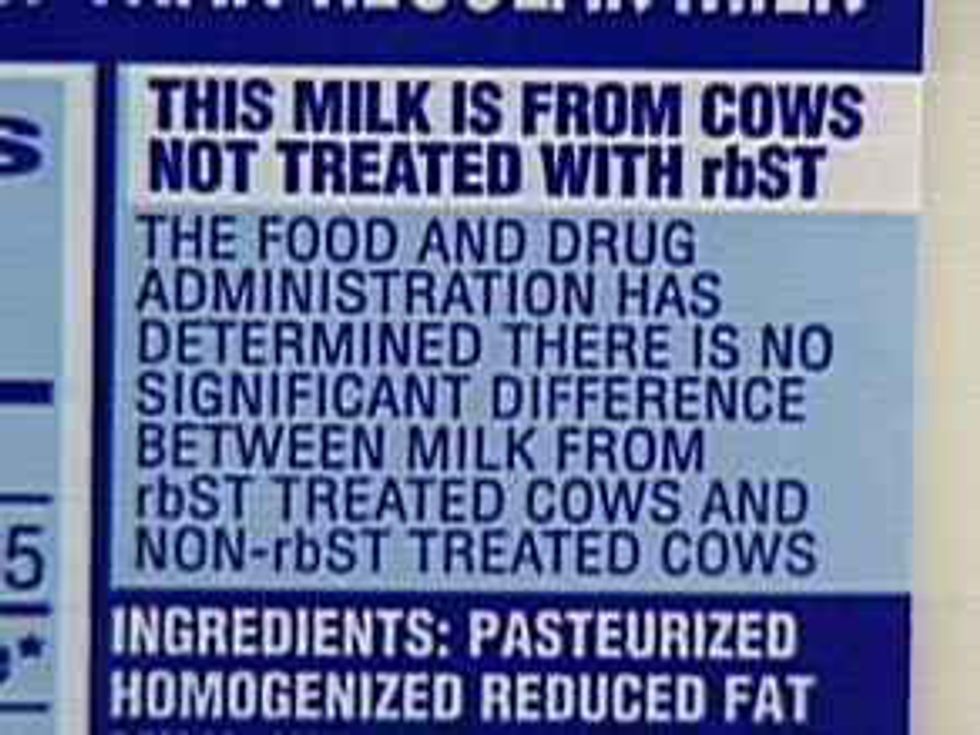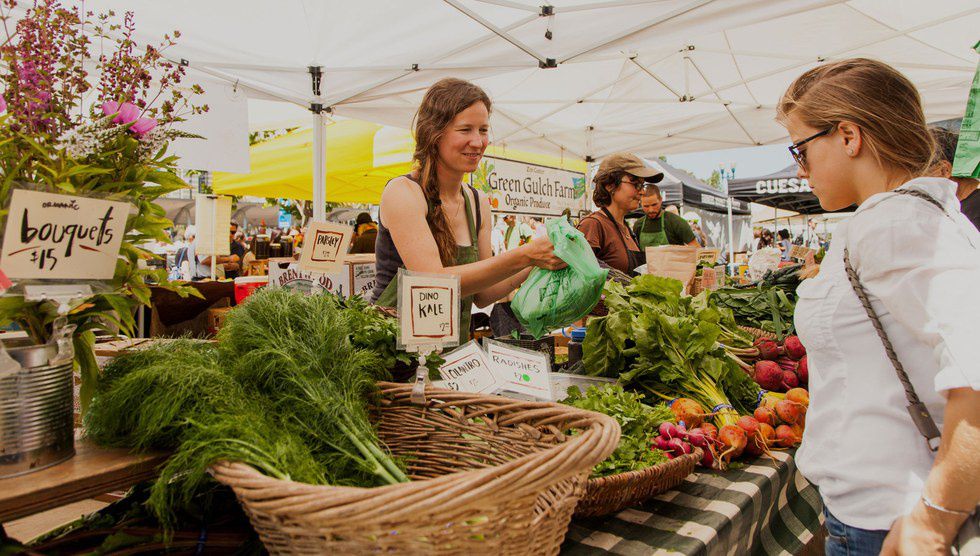Do buzzwords, TV commercials, and articles shared by Facebook friends have an impact on your food choices? Are you worried that you don't know where your food is coming from or what the words on the package really mean? For a lot of us today, the answer is yes! In a society where technology is prevalent, less than two percent of our population is on the farm, and people believe what they read on social media, it's easy to see how so many consumers today don't understand the facts behind the fads, so today I'm going to try and shed some light on these hot topics.
Before I do, I'd like to clarify a few things. The first is that I definitely do not know everything there is to know about the agricultural industry, I am simply passionate about agriculture and hope to educate consumers. My other disclaimer is that regardless of what I believe is true about agriculture, I want you to make your own choices when it comes to what you put into your body. By no means do I want to make you feel as though you are making the wrong choices if you disagree with what I am sharing. I simply want to give people the chance to make educated decisions when they head to the grocery store. After reading this, I hope that you do continue to research but with a greater understanding of some of the buzzwords influencing our choices today. In the grand scheme of things, all of the agricultural products produced in our country today are safe and were produced by hardworking, honest people. I support all types of agriculture and hope that after reading through this article, you will too.
So, when you hear these words on commercials or read them on a label, what do they truly mean?
GMO Free
Genetically Modified Organisms! GMOs are plants that, through genetic engineering, have had one or a few genes added, moved or turned off to achieve the desired trait. This process works to solve many problems including disease, insects, drought, and more! While there is speculation that products containing GMOs are not safe, years of research has proven that GMOs cause no harm to humans or animals who consume them. In fact, GM seeds take an average of $136 million and 13 years to bring to market because of extensive research and regulatory reviews conducted by up to three U.S. government agencies, including the USDA, EPA and FDA, as well as numerous other regulatory bodies around the world.
While GMOs have been proven safe, it is your decision to make as to whether you will consume products containing them or not. When it comes to labeling though, many companies use “GMO Free” or “Non-GMO” simply as a marketing ploy to push consumers to their products. Many times, products which, at this time, could not possibly contain GMOs are labeled as “GMO Free” causing much confusion for consumers. Currently, the only genetically modified crops on the U.S. market are varieties of sugar beets, summer squash, alfalfa, papaya, soybeans, cotton, canola, corn, and most recently apples. So when fear mongering companies like Hunt’s announce to their consumers that their tomatoes are “GMO Free”, they might not be lying but they surely are not being honest.
All in all, GMOs are safe to consume and are helping our farmers feed a growing population with less resources! Yay!
Gluten Free
Gluten is a protein found in wheat, barley and rye. Gluten is essential for the process of making bread and it is that protein that gives bread its texture and elasticity. Breads and grains have long been a staple of human diets and continue to be an excellent source of energy. A small percent of the population (between 1% and 2%) has celiac disease which is an intolerance to gluten. Another small percentage (maybe up to 5%) have a wheat allergy or gluten sensitivity. Grains that are gluten free include oats, millet, quinoa, rice, corn, sorghum, and buckwheat.
So, if you’re one of those people that has a gluten sensitivity or intolerance, you still have lots of grain options that are gluten free! Otherwise, gluten is something that you really shouldn’t worry about!
Hormone Free (Poultry and Pork)
This is another one that can be confusing because companies twist the truth through their marketing. When you grabbed that bag of Tyson chicken breasts last week with the “No Added Hormones or Steroids” label, did you read the fine print? Because hormones are illegal in the raising of all pork and poultry in the United States and the USDA requires that a label claiming “Hormone Free” must be followed by "Federal regulations prohibit the use of hormones.” Again, the marketing behind this is a dishonest and confusing way to sell a product.
Hormone Free (Milk)
Another place we often see “Hormone Free” labels is in the dairy aisle. Labels which read, “This milk is from cows not treated with rBST” fall into the same category. rBST stands for Recombinant Bovine Somatotropin, some really long words for a hormone which helps cows to produce milk. There are a few things that need explained here. The first is that rBST is a naturally occurring hormone which all cows produce, so no, there is no such thing as hormone free milk. So what about the labels that claim, “This milk is from cows not treated with rBST”? Those are true, but below this label is another reading, “The Food and Drug Administration has determined there is no significant difference between milk from rBST treated cows and non-rBST treated cows.” Again, this label must legally appear on the milk in hopes of keeping consumers informed.
As mentioned, rBST is a hormone which cows already produce naturally and which is safe for consumption. Farmers use rBST to help keep their cows in production through slow periods and without it, some farmers would often be pushed to the point of selling a cow because she is not able to produce enough to make a profit. Is it a financial decision? Yes. Does it hurt the cow? No. Does it have any significant difference on your milk? Not according to years of legitimate research!
Natural
Let’s keep this one simple. The USDA defines natural as, “A product containing no artificial ingredient or added color and is only minimally processed. Minimal processing means that the product was processed in a manner that does not fundamentally alter the product. The label must include a statement explaining the meaning of the term natural (such as "no artificial ingredients; minimally processed”).”
That one is pretty simple! However, it is often confused with organic, which is very different. Natural has nothing to do with how the product is raised, simply how it is processed. Read on to find out what organic means!
Organic
The USDA allows producers to label products “organic” if they contain at least 95% certified organic ingredients. So does organic mean no pesticides ever? Nope! There’s a pretty extensive list of the synthetic and natural pesticides that producers are able to use on certified organic crops and livestock, feel free to check it out for yourself.
But isn’t organic food healthier? Nope! Study after study has shown that organic crops offer no nutritional perks over their traditional counterparts.
Local
Buying locally grown products is a great way to support your community, be more involved in your food choices, and can be lots of fun! However, there is no legal definition of local and some grocery stores have been known to label food grown almost 500 miles away, as local. Just another label to be aware of and understand!
So, what does all of this mean? The moral of the story is that education is so important! Food is a huge part of our lives and the choices that we make should be based on knowledge and truth. Do I support organic, GMO free, gluten free, hormone free products? Of course! What I do not support, is fear mongering and purposely misinforming customers out of pure greed.
I hope that after reading this you are inspired to continue researching and understanding where your food comes from and that you can be confident in your food choices. Agriculture is an industry that desperately needs our support and educating yourself is the first step in supporting our producers. So remember, whether you’re a vegan, someone who chooses organic, a consumer of traditionally grown products, or anyone who eats food (YES YOU!!), educate yourself on where that food is coming from and be sure to thank a farmer every chance you get!



























